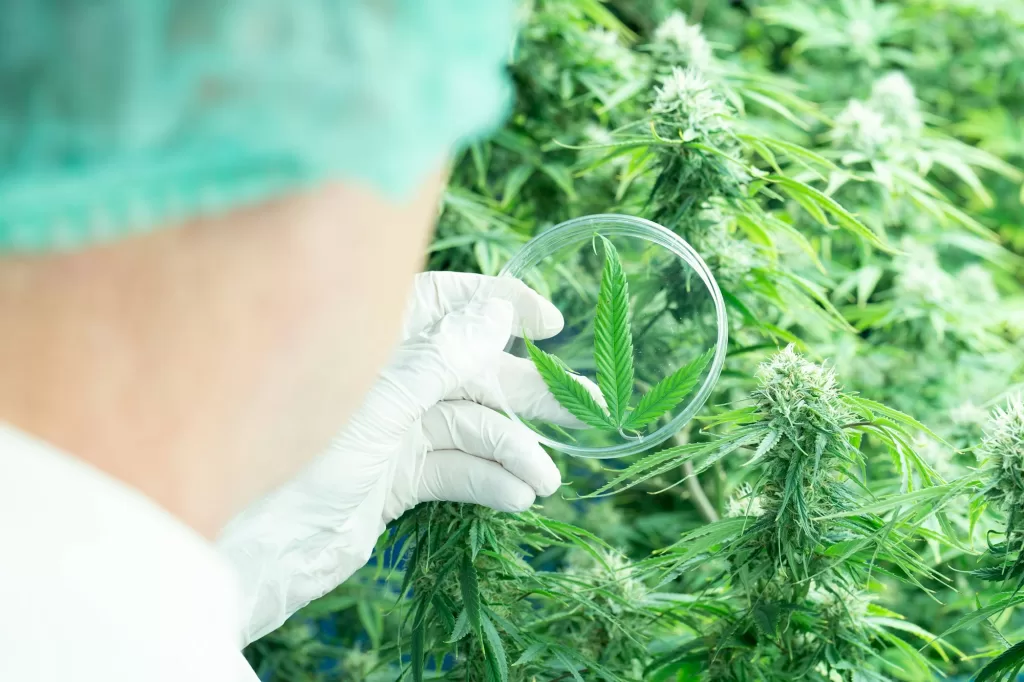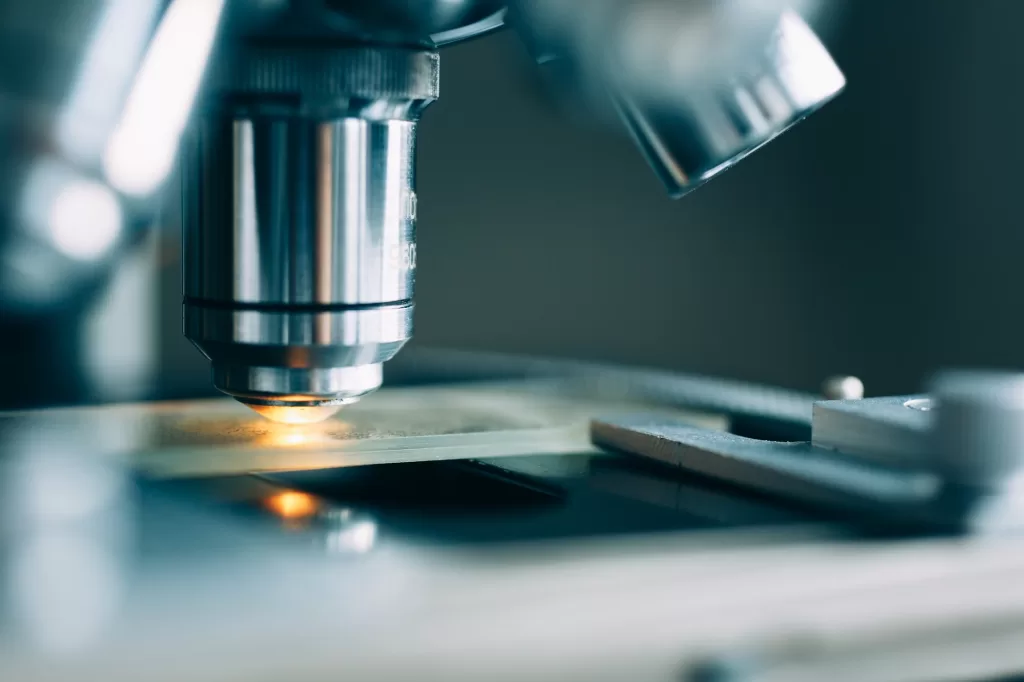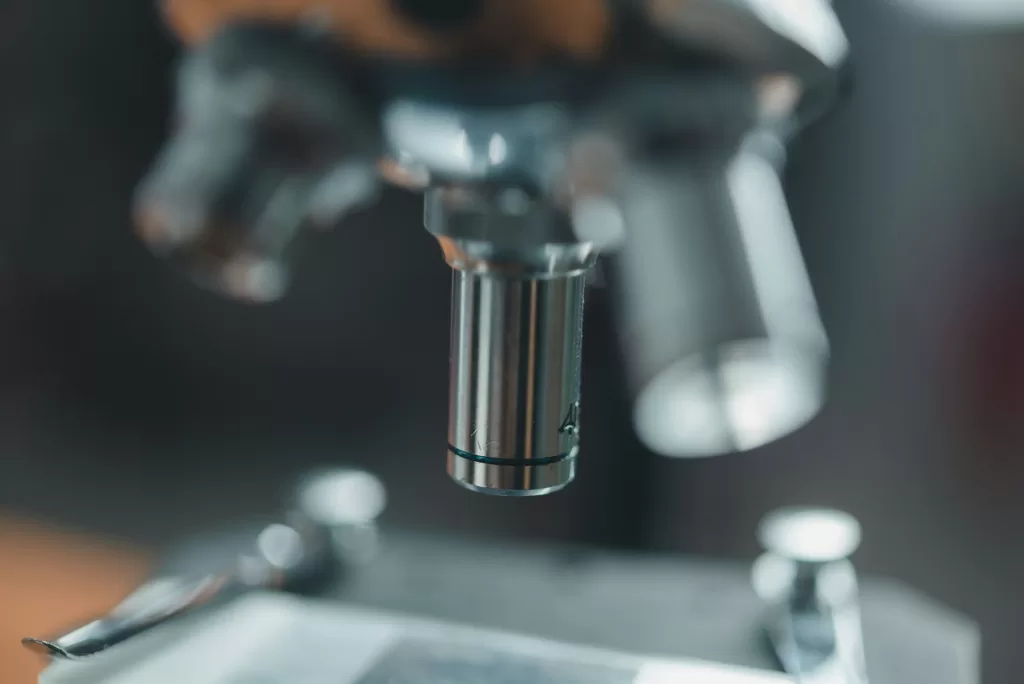Estimated reading time: 6 minutes
Key Takeaways:
| Trend | Details |
| Renewable Energy | Adoption in cultivation to reduce carbon footprint |
| Organic Farming | Use of natural pesticides and fertilizers for healthier crops |
| Water Conservation | Implementation of efficient irrigation systems |
| Technology Integration | AI and blockchain for strain analysis and supply chain transparency |
| Sustainable Packaging | Shift towards biodegradable and recyclable materials |
The cannabis industry is undergoing a significant transformation, with a strong shift towards sustainability and environmentally friendly practices. As we move into 2024, the focus on green cultivation methods is more pronounced than ever, reflecting a collective effort to mitigate the environmental impact associated with cannabis production. AccuScience Labs, a central figure in the analytical and consulting sphere of the cannabis sector, is at the forefront of championing these sustainable practices.
The Green Revolution in Cannabis Cultivation
The traditional cannabis cultivation landscape is being redefined by the integration of renewable energy sources. Solar and wind energy are becoming common in powering grow operations, significantly reducing reliance on fossil fuels and lowering the carbon footprint of cultivation facilities. This move not only aligns with global sustainability goals but also appeals to the eco-conscious consumer, who prioritizes products derived from green sources.
Renewable energy sources like solar panels and wind turbines are not just symbols of modern green initiatives; they’re becoming the backbone of sustainable cannabis cultivation. By harnessing the power of nature, these renewable sources ensure that the energy-intensive process of growing cannabis leaves a lighter ecological footprint. This sustainable approach to energy consumption not only aligns with global environmental goals but also sets a new standard for responsible cultivation practices in the cannabis industry.
Organic farming practices are also gaining traction. By eschewing synthetic pesticides and fertilizers, cultivators are producing healthier, more natural cannabis products. This not only ensures the safety and purity of the cannabis but also protects the surrounding ecosystem from chemical runoff and pollution.
The adoption of organic farming techniques marks a return to natural cultivation methods, emphasizing the health of both the plant and the planet. This approach extends beyond just avoiding harmful chemicals; it involves nurturing the soil with organic compost, employing natural pest control methods, and practicing crop rotation to maintain soil health and biodiversity. By embracing these age-old agricultural practices, the cannabis industry is contributing to a healthier ecosystem and offering consumers products that are both safe and sustainably produced.
Water Conservation
Water conservation is another critical aspect of sustainable cannabis cultivation. Innovative irrigation techniques, such as drip irrigation and the use of moisture sensors, are optimizing water use, ensuring that plants receive the precise amount needed without wastage. These practices are particularly vital in arid regions where water scarcity is a pressing issue.
In the realm of water conservation, the cannabis industry is making strides with innovative solutions that go beyond efficient irrigation. Rainwater harvesting systems are being integrated into cultivation facilities, capturing and storing rainwater for future use, thus reducing dependence on municipal water supplies. Additionally, water recycling technologies are being employed to treat and reuse water within cultivation operations, further minimizing the industry’s water footprint and ensuring that precious water resources are conserved.
Technological Innovations Driving Sustainability
The role of technology in shaping sustainable cannabis cultivation cannot be overstated. Artificial Intelligence (AI) and machine learning are revolutionizing the way cultivators manage their crops. From monitoring plant health to optimizing growing conditions, these technologies ensure maximum efficiency with minimal environmental impact.
Technological advancements are propelling the cannabis industry into a new era of sustainable cultivation. Drones and sensors are being used to monitor crop health and environmental conditions, allowing for precise application of water and nutrients, reducing waste, and enhancing yield quality. This precision agriculture approach maximizes resource efficiency and minimizes environmental impact, showcasing how technology can harmonize with nature to create a sustainable future for cannabis cultivation.
Blockchain technology is providing unparalleled transparency and traceability in the cannabis supply chain. By recording every transaction and movement of products from seed to sale, blockchain ensures product authenticity and quality, which is paramount in an industry where consumer trust is crucial.
Towards Sustainable Packaging and Beyond
The sustainability efforts extend beyond cultivation practices to encompass packaging as well. The cannabis industry is witnessing a significant shift towards biodegradable and recyclable packaging materials, reducing plastic waste and its environmental footprint. This initiative not only addresses the pressing global issue of plastic pollution but also resonates with consumers’ growing preference for sustainable packaging options.
The evolution of sustainable packaging in the cannabis industry is a testament to its commitment to environmental responsibility. Innovations in packaging materials, such as hemp-based plastics and algae-derived bioplastics, are setting new standards for sustainability. These materials not only offer a viable alternative to traditional plastics but also contribute to a circular economy, where products are designed to be reused, recycled, or composted, thereby reducing waste and promoting environmental sustainability.
Community Engagement and Education
In an era where sustainability is not just a practice but a necessity, the cannabis industry is also turning its focus towards community engagement and education. Companies are stepping beyond their cultivation sites and labs to engage with the communities they operate in, fostering a culture of environmental awareness and responsibility. This involvement ranges from hosting educational workshops and seminars about sustainable cannabis cultivation to participating in local environmental initiatives. By doing so, they’re not only spreading knowledge but also encouraging community members to adopt eco-friendly practices in their daily lives.
Moreover, the emphasis on education extends to consumers, with brands and companies providing transparent information about their sustainable practices and how these contribute to a healthier planet. This transparency not only builds trust but also empowers consumers to make informed choices, opting for products that align with their environmental values. As the cannabis industry continues to grow, its role in educating and engaging with both communities and consumers will be pivotal in shaping a more sustainable future, not just within the industry, but in society at large.
AccuScience Labs: Leading by Example
We at AccuScience Labs understand the importance of environmental stewardship in the cannabis industry. Through our commitment to sustainable practices and cutting-edge technologies, AccuScience is not only ensuring the purity and safety of cannabis products but also leading the charge towards a more sustainable and environmentally conscious industry. Our efforts underscore the importance of sustainability in the cannabis sector and serve as a model for other companies to emulate.
Conclusion
As we forge ahead, the cannabis industry’s commitment to sustainability is becoming ever more critical. It’s a commitment that transcends compliance and profitability, embodying a broader responsibility to our planet and future generations. Through continued innovation and dedication, the industry is poised to redefine what it means to be green, proving that responsible cultivation and environmental stewardship can go hand in hand.
The journey towards sustainability within the cannabis industry symbolizes a broader commitment to our planet’s future, blending innovation with tradition to forge a path that respects the earth while delivering quality products.
As we look ahead, the collective efforts of companies who care about environmental issues, alongside community engagement and consumer education, herald a new era where environmental stewardship is at the core of industry practices. This holistic approach ensures that the cannabis industry not only thrives but does so in harmony with the environment, setting a benchmark for other sectors to follow in the pursuit of a greener, more sustainable world.
Related links:
- AccuScience Laboratories Sustainability Consulting to the Cannabis Industry
- Why is Florida so popular for Growing Cannabis?
- Eustis, Florida: A Prime Locale for Legal Marijuana Growth and the Role of AccuScience Labs
- Revolutionizing Cannabis Cultivation with Plant Sap Analysis
- AccuScience Labs names Dr. Harry Behzadi, Ph.D. as President, CEO






